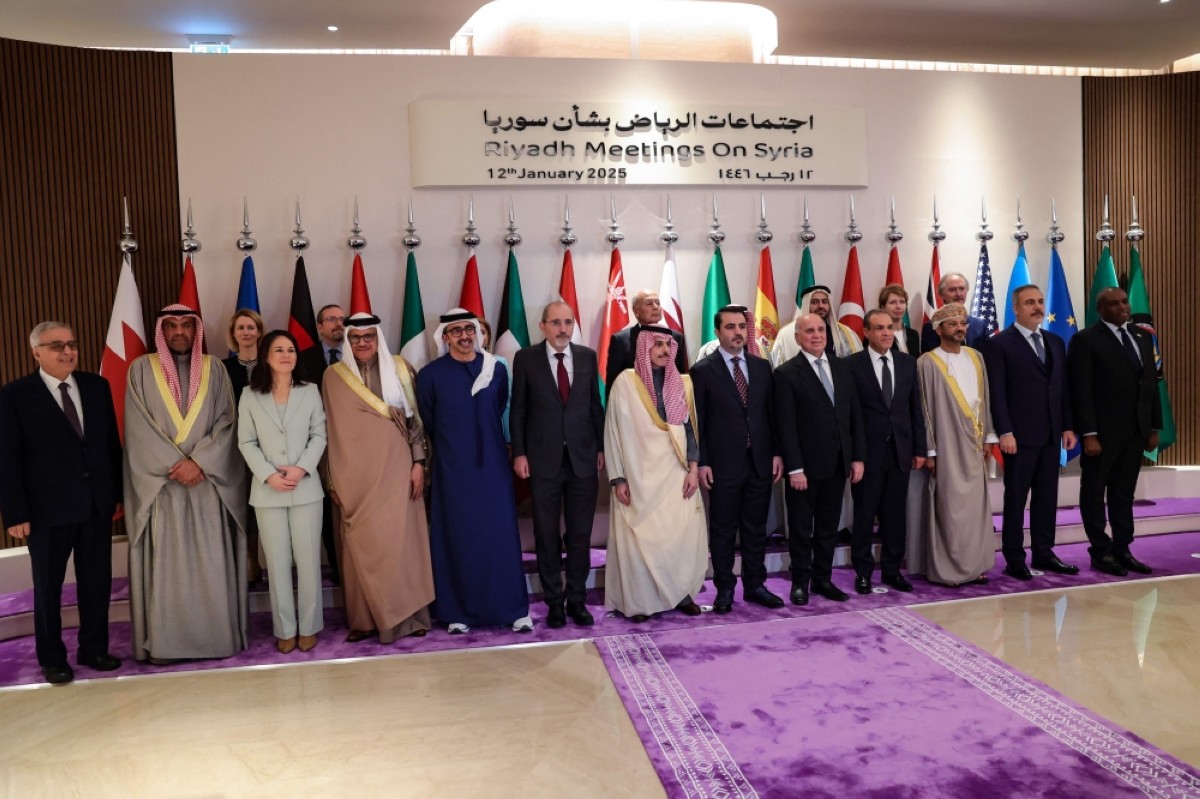RIYADH: Saudi Arabia on Sunday called for the lifting of sanctions on Syria after meetings with top diplomats from the Middle East and Europe that focused on the war-ravaged country’s future. "We stressed the importance of lifting unilateral and international sanctions imposed on Syria, as their continuation hinders the aspirations of the Syrian people to achieve development and reconstruction,” Saudi Foreign Minister Prince Faisal bin Farhan said after Sunday’s talks concluded in Riyadh.
The agenda included a meeting of Arab officials as well as a broader gathering that also included Kuwait, Turkey, France, the European Union and the United Nations. Syria’s new leader Ahmed Al-Sharaa, who led the main rebel group in the alliance that overthrew Bashar Al-Assad, is pushing for sanctions relief. His administration was represented at the Riyadh talks by Foreign Minister Asaad Al-Shaibani.
Western powers, including the United States and the EU, imposed heavy sanctions on Assad’s government over his brutal crackdown on anti-government protests in 2011, which triggered civil war. Some US sanctions long predate the conflict, with Washington labelling Syria a "state sponsor of terrorism” in 1979 and adding further measures in 2004.
More than 13 years of conflict have killed over half a million Syrians, left infrastructure destroyed and the people impoverished, while millions have fled their homes, including to Europe. The US Treasury Department said last Monday it would ease the enforcement of restrictions affecting essential services such as energy and sanitation. But officials in Washington say they will wait to see progress before any wider easing of sanctions.
The European Union’s top diplomat, Kaja Kallas, said on Friday that the 27-nation bloc could begin lifting sanctions if Syria’s new rulers took steps to form an inclusive government that protected minorities. European foreign ministers are due to meet on Jan 27 to discuss the issue, she said. Possible priorities for relief include "those sanctions that are hindering the building up of a country, access
to banking services and all these things”, Kallas told reporters in Riyadh. "If we see the developments going to the right direction we are ready to do the next steps,” she said, adding there also had to be "a fallback position”.
German Foreign Minister Annalena Baerbock told reporters in Riyadh that her government wanted a "smart approach” that would enable aid to reach Syrians. "Sanctions against Assad’s henchmen who committed serious crimes during the civil war must remain in place... Syrians now need a quick dividend from the transition of power,” she said, adding that Germany would provide another 50 million euros "for food, emergency shelter and medical care”. According to the UN, seven in 10 Syrians need help.
A statement published Sunday evening by Saudi state media did not include a call from all participants for sanctions relief, instead saying "steps were discussed to support the brotherly Syrian people and provide them with all aid and support in this important stage of their history”.
It also voiced concern about the Zionist entity’s entrance into the buffer zone that separated Zionist and Syrian forces in the Golan Heights.
Saudi Arabia cut ties with Assad’s government in 2012 and had long openly championed his overthrow. But in 2023 it hosted an Arab League meeting at which Assad was welcomed back into the regional fold. This month the Gulf kingdom sent food, shelter and medical supplies to Syria by land and by plane. Riyadh is now negotiating how to support the country’s long-term recovery.
"We also emphasized the importance of continuing to provide various forms of humanitarian and economic support, as well as efforts to build the capacity of the Syrian state, achieve stability, and facilitate reconstruction,” Prince Faisal said in his statement. "This includes creating a conducive environment for the return of Syrian refugees.”
British Foreign Minister David Lammy also joined the Riyadh. Discussions would focus on support for the interim Syrian authorities, "including mechanisms to hold the Assad regime to account for the war crimes they perpetrated against the Syrian people,” the UK foreign office said in a statement. – Agencies


